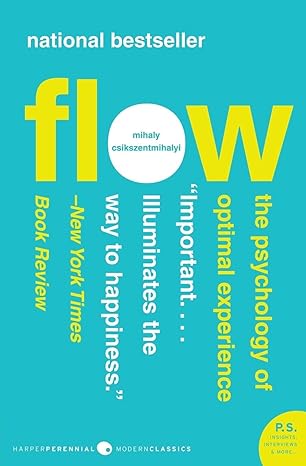Also known as "The Zone." A psychological state of deep focus, enjoyment, and intrinsic motivation.
Core Concept of Mental Flow
"Mental Flow," often simply called "flow," is a psychological concept introduced by Mihaly Csikszentmihalyi.
In this state, attention locks in, self-consciousness fades, and performance becomes effortless.

How to Enter a Mental Flow State
Achieving a state of flow can be a powerful way to enhance performance, creativity, and overall well-being.
Here are steps to help you reach this optimal state of consciousness:
Step 1: Set Clear and Challenging Goals
- Define specific, measurable goals for the task at hand.
- Ensure these goals are challenging yet achievable, providing direction and purpose.
- The task should match your skill level, offering enough challenge to engage you without causing frustration (difficulty can cause anxiety) or boredom (too easy).
Step 2: Eliminate Distractions
- Minimize interruptions by creating a distraction-free environment.
- Find a quiet workspace, silence your phone, and block distracting websites to focus better.
Step 3: Focus on the Process
- Shift your attention to the activity itself, rather than fixating on the outcome.
- Fully engage with the task, bringing your complete focus and energy to it.
Step 4: Seek Immediate Feedback
- Look for opportunities to receive or generate immediate feedback on your performance.
- Use this feedback to make adjustments and stay on track, maintaining your sense of progress and engagement.
Applications of Flow
Flow theory has been applied in various fields to enhance performance, creativity, and well-being:
| Category | Description |
|---|---|
| Education | Teachers can design activities that balance challenge and skill to help students achieve flow, enhancing learning and engagement. |
| Sports | Athletes often experience flow during peak performance. Coaches utilize flow principles to help athletes enter this optimal state more regularly. |
| Work | Employers and managers can design tasks and environments that encourage flow, boosting productivity and job satisfaction. |
| Gaming | Video game designers leverage flow principles to create immersive and enjoyable experiences for players. |
| Creative Arts | Artists, musicians, and writers frequently seek flow to enhance their creativity and productivity. |
| Personal Development | Many apply flow principles to hobbies and personal projects, increasing fulfillment and achieving personal goals. |
When to Use the Mental Flow Framework
- Deep creative work: Writing, designing, or coding tasks that require sustained problem solving.
- Skill development: Practicing complex skills where attention quality determines progress.
- High-stakes performance: Sports, public speaking, or live problem solving under pressure.
- Deep work sessions: Long focus blocks where productivity matters more than speed.
- Personal mastery projects: Hobbies or side projects that require deliberate improvement.
Takeaway
The secret to happiness and productivity lies in controlling your attention.
Flow is not a passive state that happens to you; it is an active state you create by matching your skills against a worthy challenge.
By structuring your work to provide clear goals and immediate feedback, you turn "work" into a source of energy rather than a drain.





